Georgia: what fate awaits tourism?
For more than a month, Georgia has been in a state of emergency due to the epidemic of coronavirus.
The pandemic has led to the establishment of many restrictions, primarily on commercial activities.
Business activity in the country has been almost completely suspended. It is too early to calculate the damage, but economists say one thing is certain – the biggest losses will be in the tourism and services sectors.
Amid the growing number of tourists in Georgia in recent years, many have linked their business with them and hopes for the future.
Now they are looking for ways to survive and are trying to adapt to the new reality, because they understand that the country will have to live without tourists for a long time.
The government is likely to have to change its policy without placing any more special hopes on tourism.
Velvet: is it possible to survive without tourists?
The store Velvet sells antique items and restored furniture.
This small business was organized by a company of friends. They rented a storeroom in old Tbilisi, in one of the busiest tourist spots, and are looking for interesting old things all over Georgia.
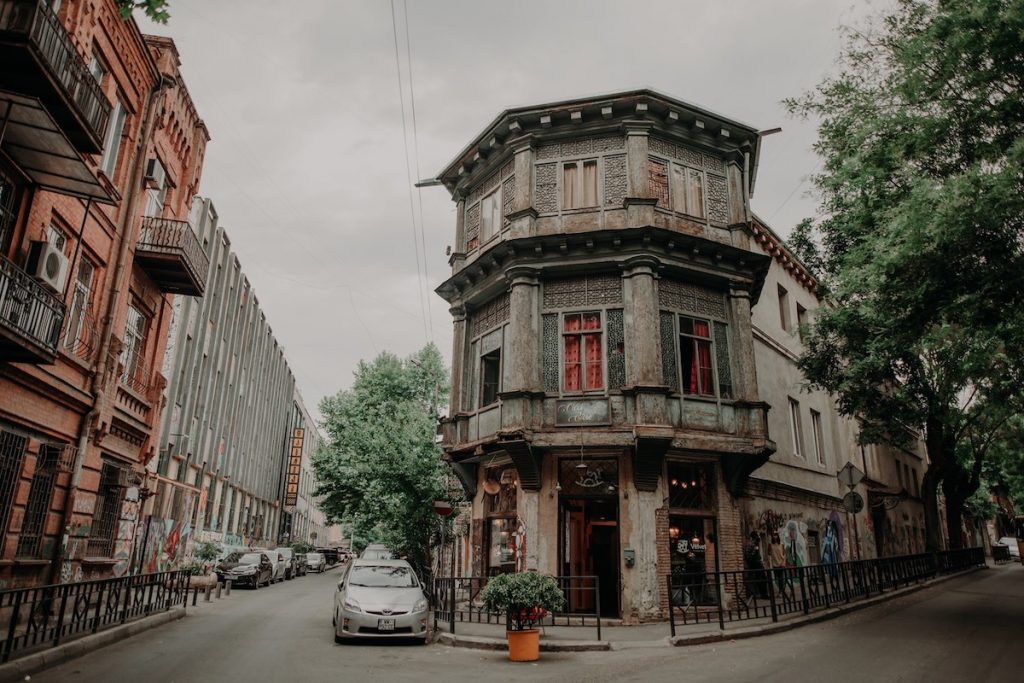
Velvet store before closing due to the state of emergency. Photo: Facebook
Sales had been going particularly well lately.
An old Soviet telephone, fixtures of the 60s, rare antique books and yellowed vinyl with an old Georgian opera recording – foreigners liked these things very much.
Today, this store, as well as most others, except for grocery stores and pharmacies, is closed.
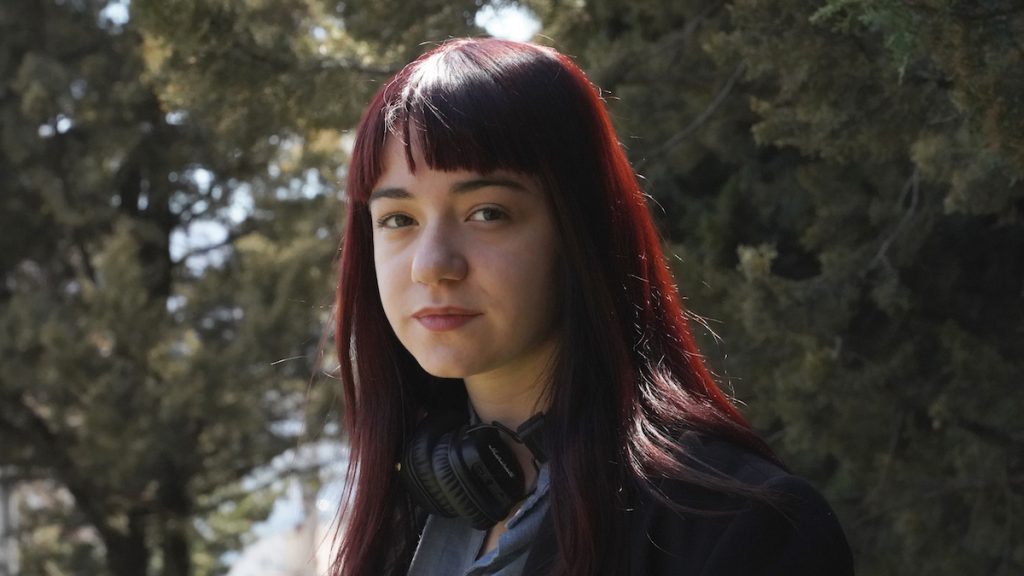
Nata Tsnobiladze, one of the founders of Velvet, says the solution was found quickly. The store has completely switched to online trading. Foreign buyers are sent the goods by mail.
“Even before the coronavirus, we were selling products online, but not much. After the declaration of the state of emergency, we made efforts in this direction. This allowed us to retain part of our employees and pay our bills,” she says.
Later, delivery by courier was temporarily curtailed due to new restrictions in the state of emergency. But the company plans to develop further in this direction.
A new type of service – quarantine
Large companies that have lost the main source of income – tourists, face the same problems.
Many companies are trying to restructure their activities. Hundreds of applications have been submitted to the Ministry of Economy from various companies with a request to resume their business in a state of emergency – for this, companies must prove that they work in compliance with social distancing measures and all hygienic standards.
- Historic Shatili village – how Georgia’s mountains have emptied of people
- Georgia and Iran: life near the epicenter of the epidemic
Georgian Bus is a company that was able to adapt to the new situation and adapt to the force majeure conditions.
The main activity of the company was the transportation of tourists, as well as regular bus services to Kutaisi International Airport from various cities of Georgia.
Low-cost airlines used this airport and the main passengers were tourists – either foreigners or tourists from Georgia traveling to Europe. With the closure of flights and the cancellation of flights, the company was left in a lurch.
However, a solution was found.
“After March 12, our only activity is the transportation of our compatriots returning to Georgia to quarantine zones. In addition to airports, we also carry people across land borders. Our buses are on standby at all borders. For example, recently we brought Georgian citizens from Yerevan, this was an order of the Ministry of Foreign Affairs. Now we are working under a contract with the tourism administration,” said Shalva Khutsishvili, director of Georgian Bus.
According to him, the company came under the very first blow of the crisis.
“However, then this new service appeared, which allowed us to compensate for a certain part of the losses. Now we can pay our employees and we don’t need to fire them,” Khutsishvili said.
The company suggests that government orders will last until the end of May, which will be very important for the financial stability of the company.
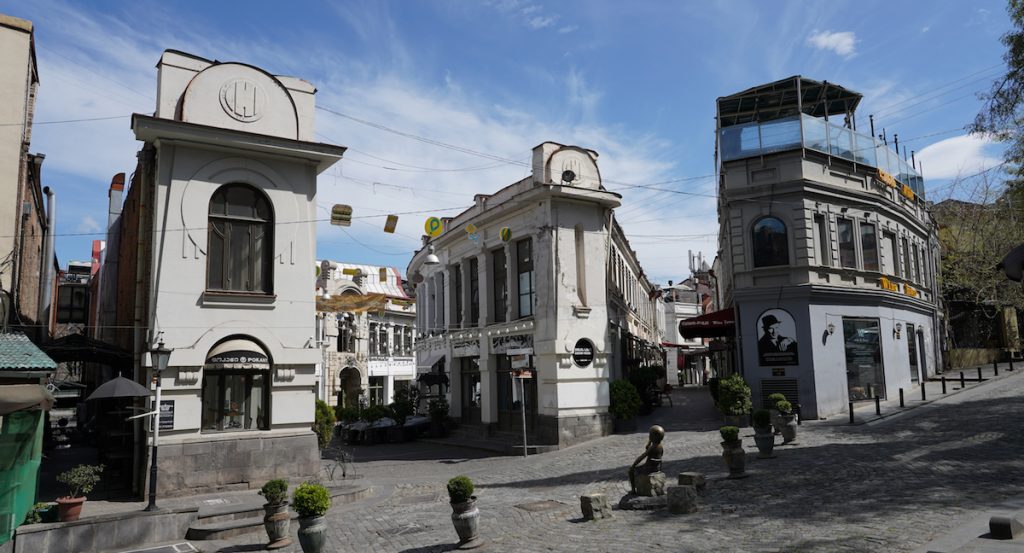
Although tourists no longer travel to the country, many hotels are still working – their only source of income has been the housing of people in quarantine. In total, 5015 people were accommodated in quarantine zones in Georgian hotels on April 22, and medical personnel and security usually live there.
As JAMnews was told at the Villa Palace Hotel in Bakuriani, the state rented this hotel from March 21 to May 20 for 300,000 lari (about 95 thousand dollars).
The hotel provides quarantined meals with three meals a day and is responsible for maintaining sanitary standards.
As of April 1, the Georgian National Tourism Administration has allocated more than 10 million lari (about $3.2 million) for hotel rental as quarantine areas. Some large branded hotels (for example, Sheraton and Holiday Inn in Tbilisi) offer their services to the state for free – as part of social responsibility. And the amount saved on the cost of their services is distributed among small hotels.
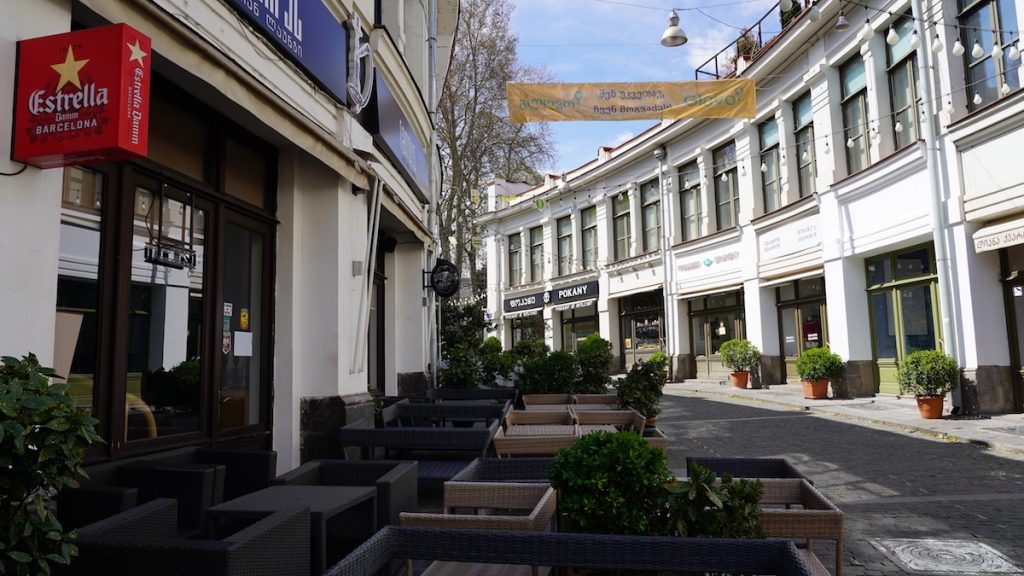
The less lucky
Owners of thousands of small hotels, hostels, guesthouses and apartments found themselves in a particularly difficult situation.
Against the backdrop of a constant increase in the number of foreign tourists, housing rental has become one of the most growing and widespread activities in Georgia in recent years.
This has become the sole or primary source of income for many families. Especially in the old historical areas of Tbilisi.
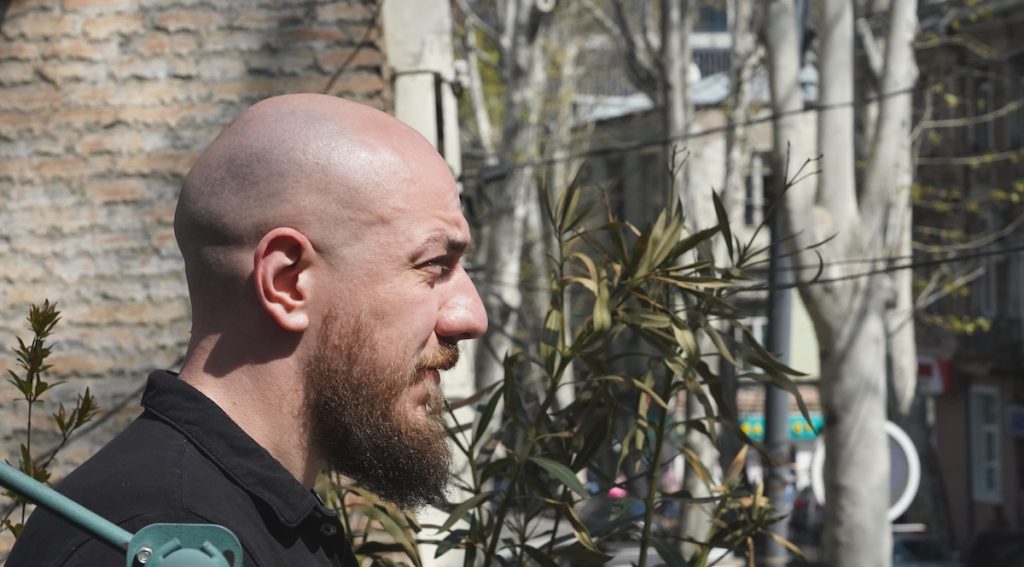
For more than two years, Guga Chapichadze has been renting apartments for tourists in the center of Tbilisi via Airbnb or Booking.com.
April-May has historically been a particularly good season for tourists coming to Tbilisi.
“All reservations have been canceled since the end of February, not one left. Before this epidemic, I took out a loan, bought a second apartment and repaired it. Now I have lost income, but the bank debt remains,” says Guga.
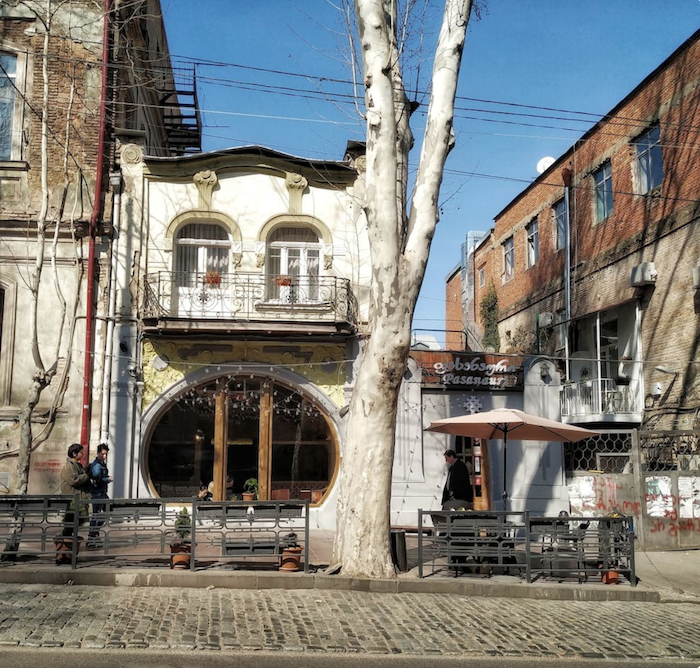
Large commercial banks have deferred payments to citizens of loans, including mortgages, for three months. However, you still have to pay, including interest for a three-month delay.
Some apartment owners have managed to find a temporary way out – to rent their apartments for two weeks to fellow citizens for self-isolation. But the demand for such services is small.
“Flights will be limited for a long time, even after the world overcomes the peak of coronavirus. Therefore, for us who are engaged in tourism, this crisis will be even more serious, and no one knows when we will return to our previous situation, ”says Guga.
The end to tourism hopes?
In the last decade, the tourism sector has grown rapidly and has become one of the most important components of the Georgian economy.
Last year, 9.3 million foreign visitors arrived in Georgia (2.5 times the population), which is a record high.
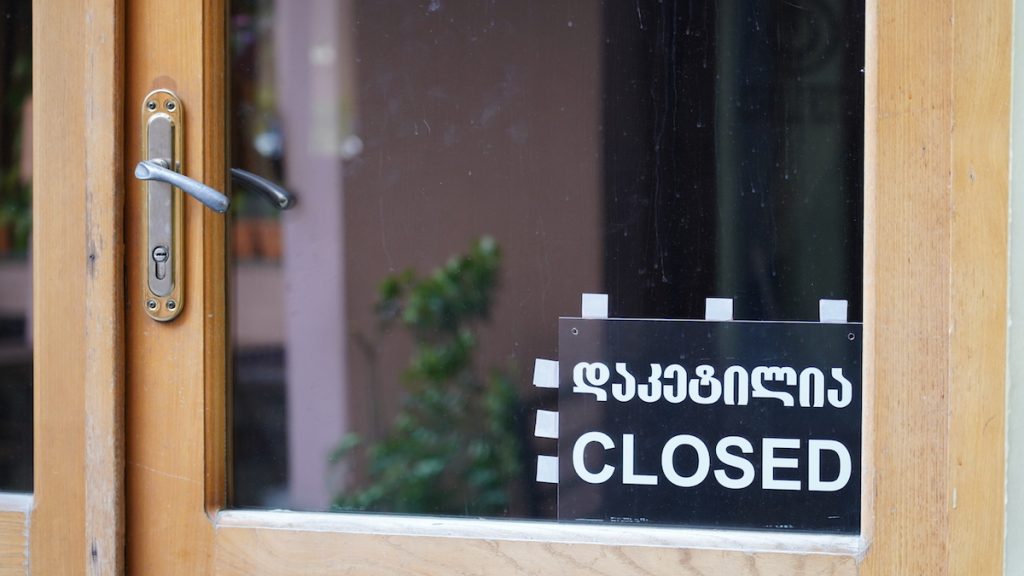
In 2011-2018, the growth rate of foreign visitors in Georgia amounted to 15% per year, which is one of the highest rates in Europe.
Thanks to these results, Georgia is ahead of not only its neighbors, but also, for example, such popular tourist destinations as Portugal, the Netherlands, Poland, Ireland, Cyprus and many others.
As the number of foreign visitors grew, so did revenue from this sector.
For example, tourism revenues in 2018 amounted to $3.2 billion. Which is 19.1% higher than for the same period in 2017. And compared with 2012 ($ 1.4 billion), it has grown almost three times.
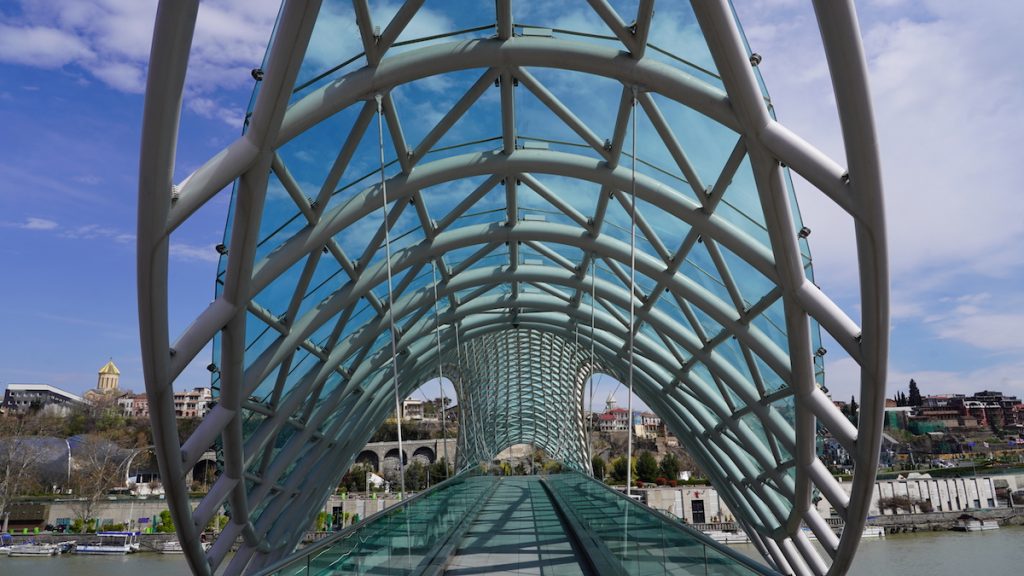
From year to year, an increasing part of the population became dependent on income from tourism, as well as an increasing part of the Georgian economy. The share of tourism in Georgia’s GDP for 2018 amounted to 7.6%.
Georgia received more than half of tourism revenue from tourists from neighboring countries – Azerbaijan, Armenia, Turkey and Russia, but recently the share of tourists with higher incomes, in particular from the EU countries, has been growing.
As of 2018, every tenth international visitor to Georgia was from the European Union, which is 36 percent more than in 2017.
It is expected that amid the current crisis, first of all, the flow of tourists from Europe and other high-income countries will decrease, which will have a significant impact on the tourism sector of Georgia, experts say.
The head of the Association of Tour Operators, Ia Tabagari, believes that because of the coronavirus, the industry will suffer enormous damage, and travel agencies, guides and drivers will be especially affected.
“Tour operators are probably at the greatest risk. In the near future, their only hope will be domestic tourism, which is not enough. Winter was thus a passive period, and immediately after it the coronavirus began. Today it’s hard to talk about any prospects, ”says Iya Tabagari.
She believes that the government should develop a long-term plan to help the sector so as not to leave many people without work. For example, she believes that the state could attract former guides who are well aware of the nature in a particular region to projects in the field of ecology.
How will the government help
The government has already announced some measures to help business owners.
According to the plan, due to the damage caused by the spread of COVID-19, the government has deferred the payment of property tax and income tax for companies operating in the tourism sector for four months.
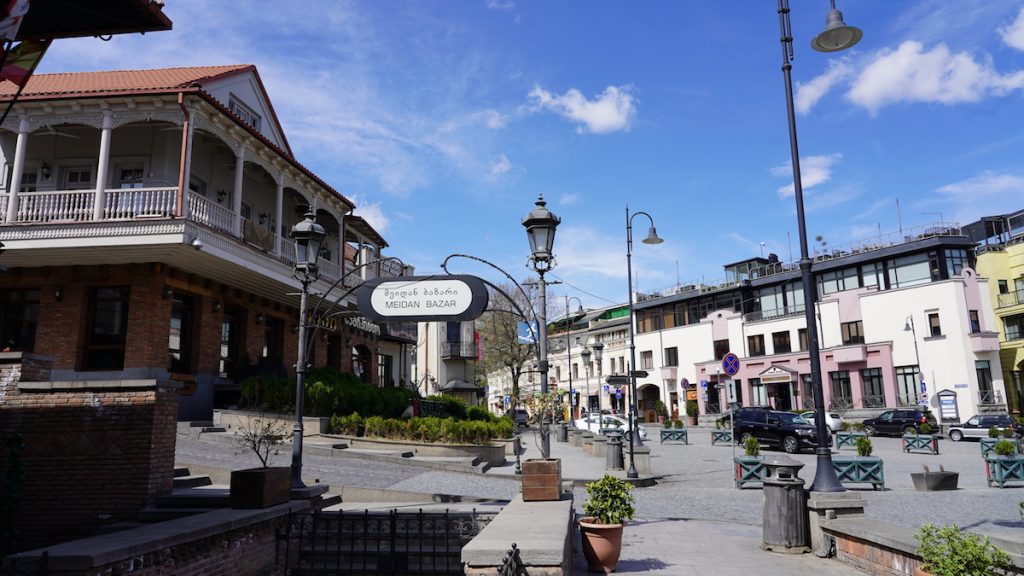
The benefits will apply to hotels, restaurants, travel agencies, transport companies, excursions and other travel services.
In addition, for a period of six months, the state will cover the interest rates on loans for hotels that have between 4-50 rooms.
Ultimately, according to government estimates, tax deferrals will affect about 18 thousand companies, which employ more than 50 thousand people. According to the forecast, in this way about 100 million lari (about $ 31 million) will remain in the private sector.
Economist Merab Janiashvili believes that one of the reasons why the Georgian economy has found itself in such a difficult situation is that in recent years the state has paid too much attention to tourism.
“It’s a big mistake to connect the economy with a vulnerable sector like tourism. In any crisis, the tourism sector suffers in the first place, because people first of all begin to save on travel. Therefore, it is the sector most vulnerable to crises, which threatens us with very bad consequences, ”says Janiashvili.
According to Janiashvili, in recent years, state assistance to business has been directed mainly to tourism assistance, although private investment in this sector has already been high.
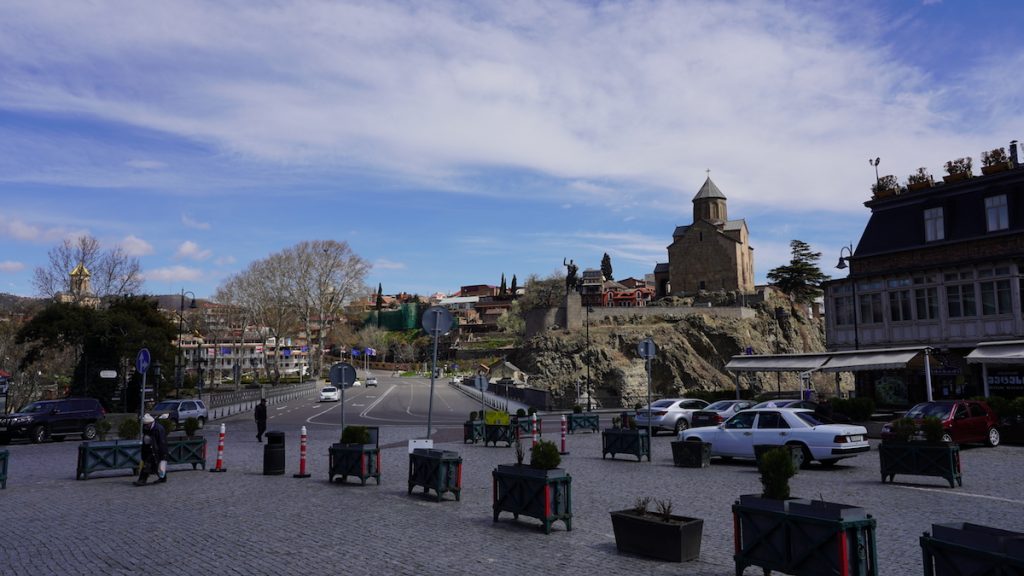
Tbilisi Center, April 2020. Photo: David Pipia, JAMnews
“For example, if we look at the last 15 projects of one of the largest state financial organizations, the Partnership Fund, the vast majority are hotel financing, which is wrong,” says Janiashvili.
According to the economist, a tax deferment to tourism enterprises will help them for some time, but in the end a significant part of the workers will still temporarily lose their jobs.
He believes that in this situation, the state should draw the right conclusions and focus on the less vulnerable sectors of the economy – production, information technology, and not on tourism.




















